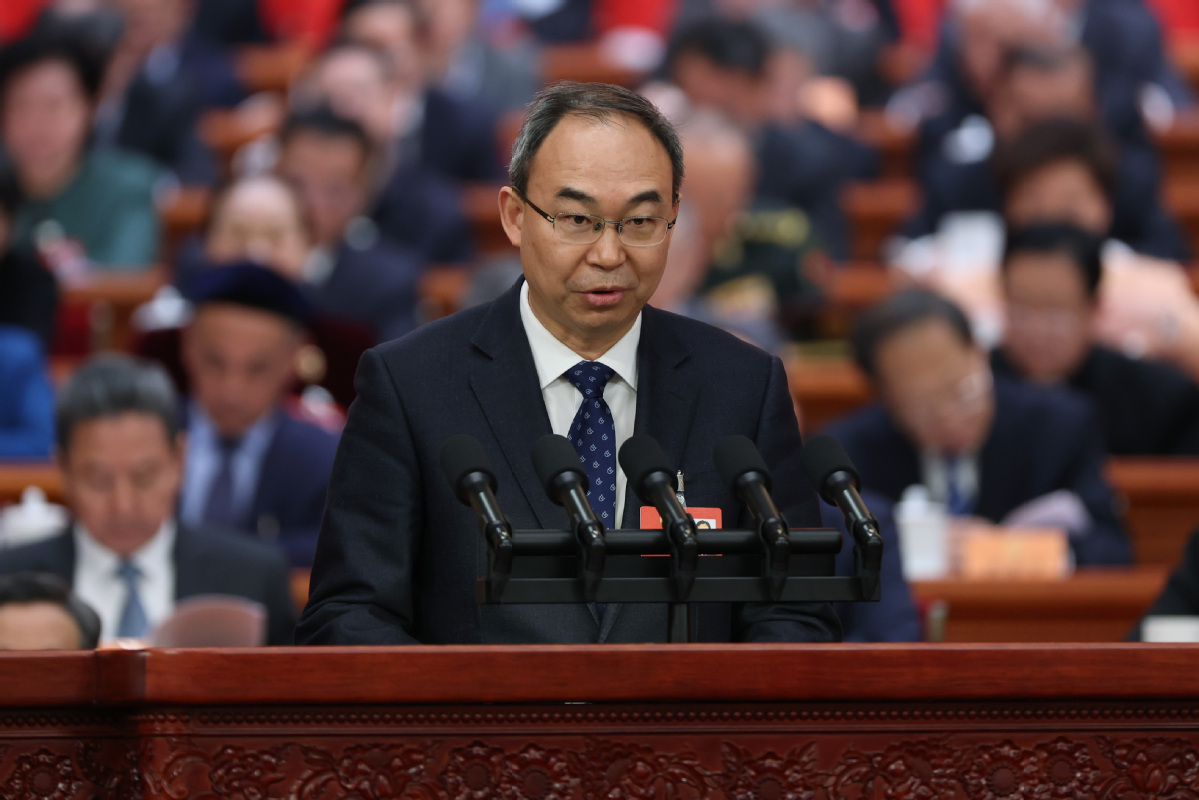Essential to allocate resources to less developed regions


To expand access to high-quality medical services, it is essential to allocate resources to less developed regions and strengthen collaborations between major hospitals and county-level institutions, a national political adviser said on Friday.
China has established 13 national medical centers dedicated to handling rare and severe cases of specific disease categories, along with 125 regional medical centers aimed at providing quality healthcare services closer to patients' homes.
Additionally, nearly 2,190 county-level medical partnerships have been formed to address the increasing healthcare needs of the population, said Wang Jun, a member of the National Committee of the 14th Chinese People's Political Consultative Conference and president of Peking University People's Hospital.
Wang, who is also an academician at the Chinese Academy of Engineering, made the remarks at a group meeting of the CPPCC National Committee on Friday.
However, Wang highlighted persisting issues such as inadequate designs and low efficiency of some medical partnerships.
Wang suggested directing more resources toward the central and western regions, northeastern provinces, as well as cities with a large population.
"Regional medical centers should ramp up efforts in enhancing disciplines with high patient transfer rates so as to build trust among patients and reduce interprovincial hospital visits," he said.
China currently has 1,795 tertiary-level hospitals — the highest tier in a three-tier hospital system — and 2,846 county-level medical facilities, according to Wang.
Following the principles of voluntary participation, spatial adjacency and prioritizing the central and western regions, Wang suggested pairing each top-tier hospital with one to three county-level counterparts and dispatching more medical professionals from larger institutions to improve medical expertise at grassroots level.
He also suggested local governments concentrate on establishing systems to ensure scientific and efficient management of regional medical centers, including providing subsidies for medical experts deployed to smaller hospitals and supporting the training of young healthcare professionals.
- China's National Day box office surpasses 1.1-billion-yuan mark
- Huizhou-style mooncakes carry forward time-honored tradition in Anhui
- Book published to highlight Chinese scientists' role in World Anti-Fascist War
- China activates emergency flood response as Typhoon Matmo brings heavy rainfall
- Chinese mountain city Chongqing becomes world's new must-see
- Hong Kong inaugurates MTR Northern Link project to fast-track Northern Metropolis construction





































